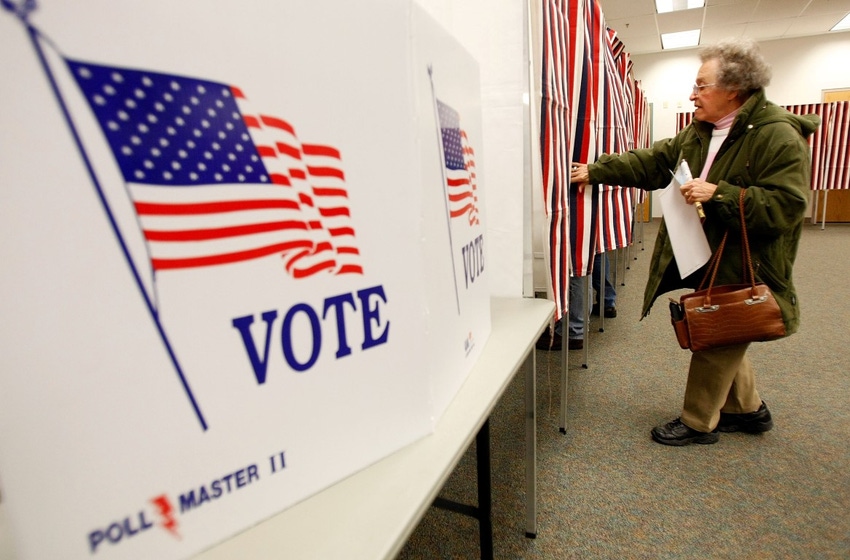
Water storage advocates in California are pleased that primary voters on June 5 passed a $4.1 billion parks bond that will include $1.6 billion for water-related projects.
Proposition 68, the California Clean Water and Safe Parks Act, was approved by 56 percent of voters statewide with all precincts reporting, according to Secretary of State Alex Padilla's office.
Placed on the ballot by legislators, the bond included $550 million for flood protection and other money for such projects as groundwater sustainability, safe drinking water and preserving the shrinking Salton Sea.
The bond's passage "will have positive impacts on Californians throughout the state," says Timothy Quinn, executive director of the Sacramento-based Association of California Water Agencies.
“Securing California’s water future has become increasingly challenging and general obligations bonds help ensure we have funding to invest in critical needs, such as safe drinking water, sustainable groundwater management and drought preparedness," Quinn said on June 6.
Water project investments
ACWA's board supported Proposition 68 on the basis that it would prioritize investments in water-related projects intended to provide safe drinking water to disadvantaged communities, improve water supply reliability, help implement the Sustainable Groundwater Management Act and restore California’s critical watersheds, a news release explains.
Advocates believe voters' solid support of the bond could bode well for another measure set for the November ballot -- an $8.87 billion water bond proposed by former state Natural Resources Agency deputy secretary Gerald Meral. The measure would provide more money for such efforts as repairs to the sinking Friant-Kern Canal in Tulare and Kern counties, safe drinking water, other drought solutions and SGMA implementation.
Earlier this year, ACWA distributed a "water bonds toolkit" to its members to help educate voters on both measures. Several of the organization's hundreds of member agencies adopted resolutions in support of the measures and Quinn participated in some editorial board meetings with the Yes on 68 campaign, according to the release.
The initiatives come as the California Water Commission is poised to hand out $2.5 billion for new storage projects as part of Proposition 1, the $7.5 billion water bond passed by voters in 2014. Meral, director of the California Water Program and Natural Heritage Institute, sees his measure as a follow-up to the one approved four years ago and believes the severe drought from 2012-2016 boosted voters' willingness to modernize the state's aging water infrastructure.
He has said the November measure differs greatly from the one that passed June 5, which was billed as a water bond but was largely a mechanism to fund parks. About half of his bond will fund issues important to the Central Valley. addressing not only SGMA and drinking water for disadvantaged communities but also recycling and desalination of inland water sources, he asserts.
Other election results
Proposition 68 was part of a lengthy ballot waded through by voters. Among other issues and races that could be of interest to farmers and ranchers:
--Voters overwhelmingly approved Proposition 72, a state constitutional amendment allowing Californians to install rain-capture devices without affecting their property taxes. The measure sailed through with 83.3 percent of the vote.
The measure's success pleased California Citrus Mutual president Joel Nelsen, who noted in an email that the organization supported it "because we try to create water for the state even though the Water Commission continues to be against water creation." The statement was in reference to the panel's low rating of the proposed Temperance Flat Reservoir near Fresno.
--Proposition 69, which amends the state constitution to require that new fuel tax and vehicle fee revenues be spent on transportation projects, passed overwhelmingly. In all, 80.4 percent of voters agreed to the measure, which was put on the ballot by lawmakers when they hiked gas taxes last year. The landslide approval could fuel conservative groups' efforts to put a measure on the November ballot to repeal the gas tax entirely.
--Voters soundly rejected Proposition 70, a proposal to have the Legislature vote in 2024 on reallocating revenue from the state's cap-and-trade program, which now funds various efforts including Gov. Jerry Brown's controversial high-speed rail project. The existing spending plan also sets aside money to help farmers and ranchers reduce emissions. Republicans pushed for the initiative as part of a deal last year to extend Cap-and-Trade to 2030, The Associated Press reported. But 63.6 percent of voters rejected any changes to the spending formula, according to the secretary of state.
--Republican businessman John Cox made it to the gubernatorial runoff against the presumptive favorite, Democratic Lt. Gov. Gavin Newsom. The former San Francisco mayor led a 27-person field with 33.4 percent of the vote, with Cox finishing second at 26.2 percent and former Los Angeles mayor Antonio Villaraigosa, a Democrat, finishing a distant third at 13.5 percent.
Citrus Mutual endorsed Villaraigosa after its board met with him this spring and liked his focus on water issues and "regulatory balance," Nelsen says. He calls Villaraigosa's defeat a surprise, adding that the organization had hoped he would come in at No. 2. He notes that most of the congressional and legislative candidates the CCM supported made it to November runoffs.
"In the final analysis the Governor’s race has left us another decision to be made but in most of the district races, whether they be federal or state, we were successful," he says. "We took some risks and won most. We supported friends and won those. By and large a good outcome but November is still ahead."
--A clear plurality of voters picked Democrat Dianne Feinstein to retain the U.S. Senate seat she has held since 1992. She led a 32-candidate field with 43.8 percent and will face Democrat Kevin de Leon, who received 11.3 percent. Feinstein is backed by several agricultural groups, including Western Growers, CCM and United Farm Workers.
About the Author(s)
You May Also Like






